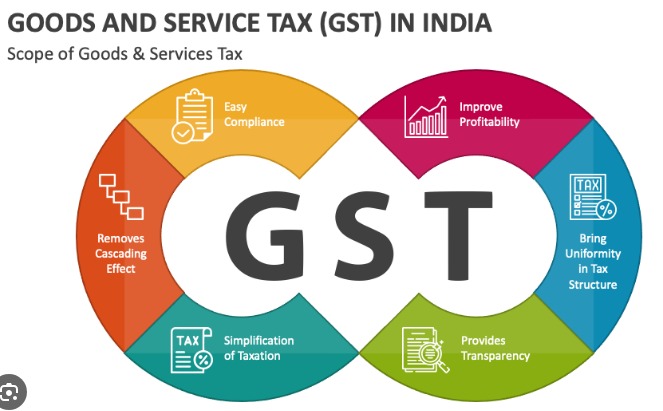
Allahabad High Court Rules: Section 130 GST Proceedings Not Applicable for Excess Stock Found in Survey
Court Says Proper Action Lies Under Sections 73 or 74, Not Confiscation Under Section 130
Judgment Protects Businesses from Wrongful Penalties, Stresses Need for Correct Legal Procedure
By Our Legal Reporter
New Delhi: November 23, 2025:
In a landmark decision, the Allahabad High Court has held that Section 130 of the Goods and Services Tax (GST) Act cannot be invoked against businesses simply because excess stock is found during a survey. The Court clarified that such cases must be dealt with under Sections 73 or 74, which provide for determination of tax liability and recovery, rather than confiscation proceedings under Section 130.
Also Read: Allahabad High Court Upholds AO’s Decision: ₹122.31 Lakh Cash Deposits Treated as Business Sales
This ruling is expected to have a major impact on businesses across India, especially traders and manufacturers who often face GST surveys and stock verification checks.
Background of the Case
The case arose when authorities conducted a survey at a business premises and found excess stock. Based on this, they initiated proceedings under Section 130 read with Section 122 of the GST Act, which deal with confiscation of goods and penalties.
The business challenged this action, arguing that the authorities had wrongly applied Section 130. According to the petitioner, excess stock does not automatically mean goods are liable for confiscation. Instead, the proper course of action is to assess whether tax has been evaded and then proceed under Sections 73 or 74.
The High Court agreed with this argument, citing earlier judgments such as Vijay Trading Company and PP Polyplast Pvt. Ltd., both of which had been affirmed by the Supreme Court.
Court’s Observations
- Excess stock ≠ confiscation: Merely finding excess stock during a survey does not justify invoking Section 130.
- Proper legal route: Authorities must use Sections 73 or 74 to determine if tax has been evaded and recover dues accordingly.
- Consistency with precedent: The Court relied on earlier rulings that had already established this principle, ensuring consistency in GST jurisprudence.
- Protection for businesses: Wrongful invocation of Section 130 could lead to harsh penalties and confiscation, which the Court deemed inappropriate in such cases.
Broader Context: GST Enforcement and Excess Stock
This ruling is part of a series of judgments where courts have clarified the scope of GST enforcement powers. Excess stock is a common issue during surveys, but courts have repeatedly stressed that confiscation is an extreme measure and should only be applied in cases of smuggling, fraudulent movement of goods, or deliberate tax evasion.
For example:
- In Maa Amila Coal Depot v. State of Uttar Pradesh (2025), the Court held that excess stock cases must be handled under Sections 73 and 74, not Section 130.
- In PP Polyplast Pvt. Ltd. v. Additional Commissioner (2024), the Court quashed penalty proceedings under Section 130, ruling that excess stock alone cannot justify confiscation.
- In Ganga Brick Field Umraipurwa v. Additional Commissioner (2025), the Court reiterated that Section 130 proceedings were unsustainable when based only on excess stock.
These rulings collectively strengthen the position of businesses and ensure that tax authorities follow due process.
Implications for Businesses
- Legal clarity: Businesses now have judicial backing to challenge wrongful confiscation proceedings based on excess stock.
- Reduced harassment: Traders and manufacturers can avoid unnecessary penalties if they maintain proper records and cooperate during surveys.
- Focus on documentation: Companies must ensure accurate stock records, invoices, and GST returns to defend against allegations of tax evasion.
- Balanced enforcement: The ruling ensures that authorities use proportionate measures, focusing on recovery of tax rather than punitive confiscation.
Expert Opinions
Tax professionals have welcomed the judgment, noting that it provides much-needed clarity. According to experts, Section 130 should be reserved for serious violations, such as clandestine removal of goods or fraudulent supply chains. Excess stock, while a compliance issue, does not automatically imply tax evasion.
They also emphasize that businesses should not become complacent. Authorities can still proceed under Sections 73 or 74, which may involve tax recovery, interest, and penalties. Therefore, maintaining transparency and proper documentation remains critical.
Conclusion
The Allahabad High Court’s ruling that Section 130 GST proceedings cannot be initiated against excess stock found during surveys is a significant development in tax law. It protects businesses from wrongful confiscation and ensures that enforcement remains fair and proportionate.
By directing authorities to use Sections 73 or 74, the Court has reinforced the principle that tax disputes must be resolved through proper legal channels, not punitive measures. For businesses, the message is clear: maintain accurate records, comply with GST rules, and rely on judicial precedents to safeguard against overreach.
Suggested Keywords for SEO (Google + ChatGPT)
- Allahabad High Court GST Section 130 ruling
- Excess stock GST survey judgment
- GST confiscation proceedings Section 130
- GST Sections 73 and 74 excess stock
- PP Polyplast Allahabad HC GST case
- Vijay Trading Company GST ruling
- Maa Amila Coal Depot GST judgment
- Ganga Brick Field Umraipurwa GST case
- GST survey excess stock legal implications
- GST penalty proceedings India
Also Read: Bombay High Court: Court Time Is Not Private Property; False Pleas Will Attract Heavy Costs
Also Read: Hindu Undivided Family: Tax Benefits, Structure, and Compliance Under Income Tax Act, 1961
Also Read: Capital Gains Account Scheme Updated: New Rules Bring Relief for Taxpayers
Also Read: Supreme Court Slams Income Tax Department for Delay in Filing SLPs
Also Read: Supreme Court Sends Officer’s Choice vs Original Choice Trademark Battle to Mediation
Also Read: Supreme Court Cracks Down on Digital Arrest Scams Using Forged Court Documents